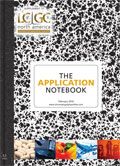Analysis of Amino Acids in Oxidized and Unoxidized Feed Samples
The Application Notebook
Commission Regulation (EC) No 152-2009 published in the official Journal of European Union laid down the methods of sampling and analysis for the official control of feed. The Regulation describes methods of analysis to control the composition of feed materials and compound feed products. Establishing the amino acids profile is an important way to control quality and nutritional value of feeds.
Commission Regulation (EC) No 152-2009 published in the official Journal of European Union laid down the methods of sampling and analysis for the official control of feed. The Regulation describes methods of analysis to control the composition of feed materials and compound feed products. Establishing the amino acids profile is an important way to control quality and nutritional value of feeds. This regulation specifies HPLC with post-column derivatization with ninhydrin reagent as the method of analysis for total and free amino acids. Pickering Laboratories developed the analytical method to comply with all the chromatographic requirements of Commission Regulation (EC) No 152-2009. The same method is used to analyze oxidized and unoxidized feed samples.

Figure 1: Chromatogram of a standard solution of amino acids.
Method

Click here to view full-size graphic

Table I: HPLC program

Figure 2: Chromatogram of an oxidized feed sample.

Figure 3: Chromatogram of a non-oxidized feed sample.

Table II: Column oven program

Pickering Laboratories
1280 Space Park Way, Mountain View, CA 94043
tel. (800) 654-3330, (650) 694-6700, fax: (650) 968-0749
Website: www.pickering.com















